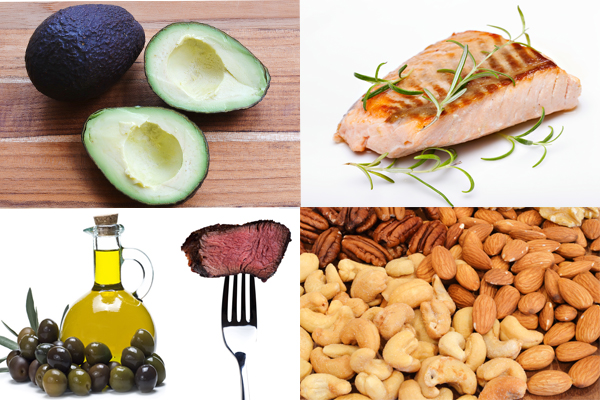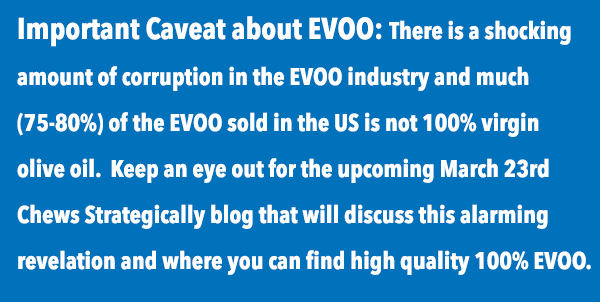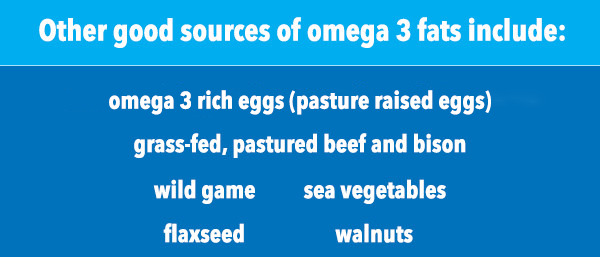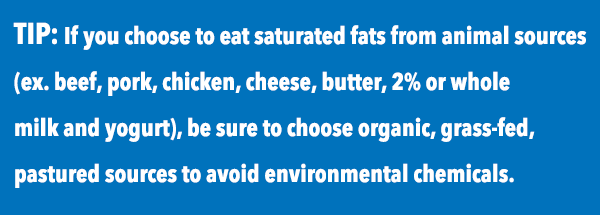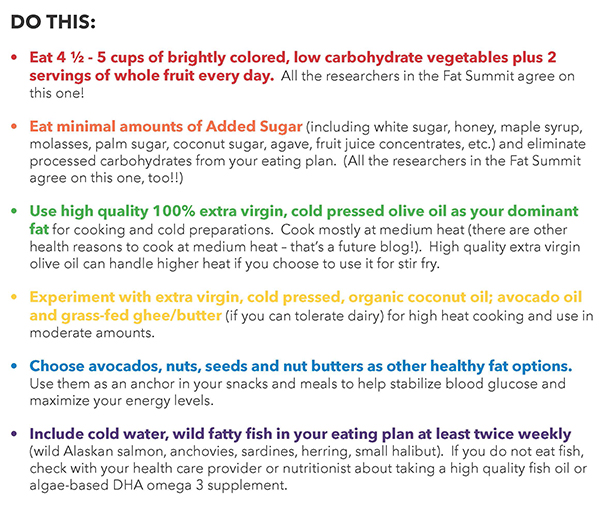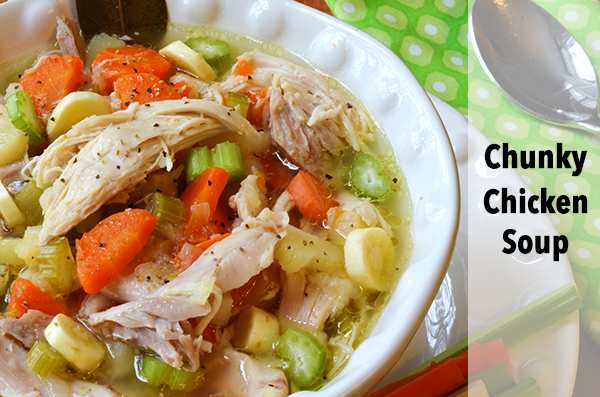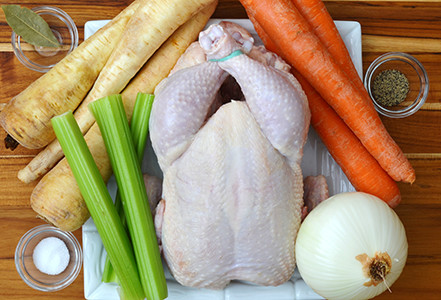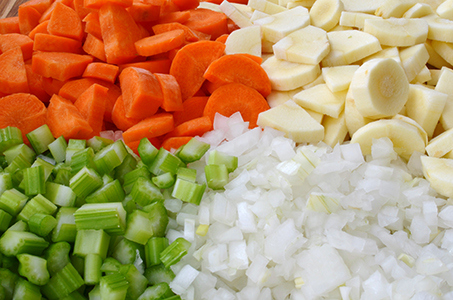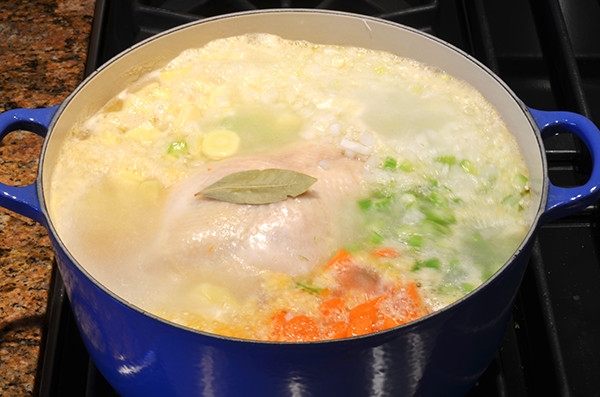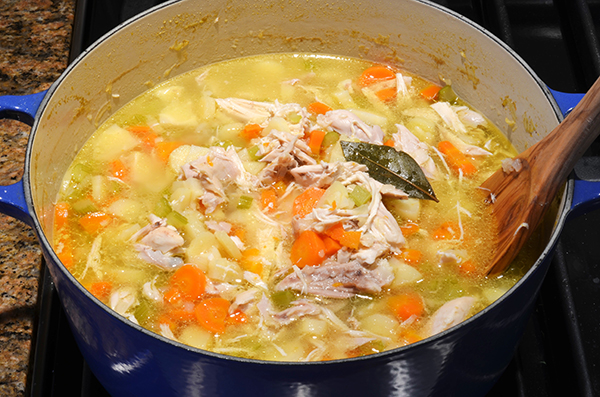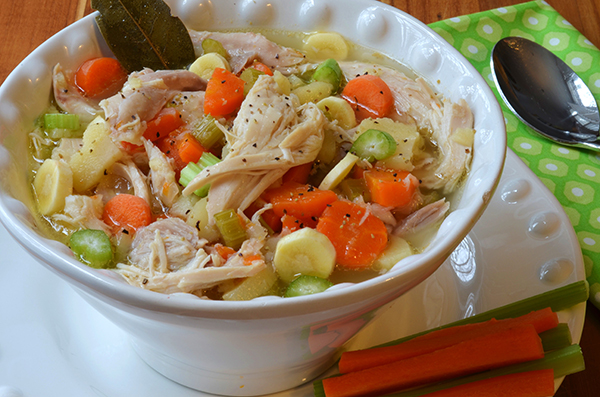I recently attended a Fat Summit hosted by Integrative and Functional Medicine physician, Mark Hyman, MD, Director of the Center for Functional Medicine at the Cleveland Clinic. Dr. Hyman invited some of the most prestigious U.S. researchers to join this online Summit to share their individual research data. This academic bench of researchers and thought leaders was deep, some of whom included:
I was so excited to finally hear the latest update about dietary fats and end the great fat debate once and for all. What a long awaited relief this would be……
This could not have been further from the truth!!
Consistent with the pattern I’ve seen over my 37 year career, nutrition research from highly respected scholars often conflicts. The reason for this is each researcher is looking at a different piece of the same puzzle. In this case, the effect of a certain dietary fat on one piece of the puzzle may be very different from the effect that fat has on another piece of the puzzle. Hence, each researcher may have a different viewpoint and recommendation about the dietary fat being studied.
So a lot of questions still remain unanswered but some information is very clear. Here's a snippet of the latest research regarding dietary fat and what we need to know...for now.
FATS TO AVOID
Trans fats/partially hydrogenated fats
There is no dispute on this one from any researcher. Manmade trans fats, also known as partially hydrogenated fats, are inflammatory and lead to heart disease. Trans fats are still found in fast foods, some restaurant foods and many pre-packaged processed foods.
*2021 update: Trans fat is now banned in many countries including the U.S. As manufacturers have removed trans fat from their products, many have replaced them with shelf-stable saturated fats such as palm oil and high oleic oils which are still highly processed.
Oxidized fats
Oxidized fats are fats and oils that are heated to high temperatures and heated over and over again (think deep fat fryers). These fats are toxic and inflammatory.
Rancid fats
Fats have a certain shelf life where they are at their peak of freshness. Just like fine wine, over exposure to heat and light can damage oils, nuts, seeds and nut butters causing the fat to become oxidized and “rancid.” Rancid oils have a very off putting smell. If you have kept your oils or nuts for an extended period, be sure to smell them to insure they have not become rancid. If they smell funny, toss them.
REALLY GOOD FATS
High Quality Extra Virgin Olive Oil
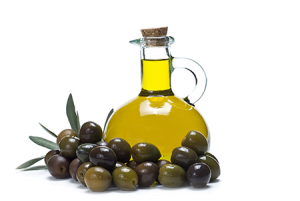 Due to its high polyphenol (antioxidants) content, 100% extra virgin olive oil (EVOO) provides numerous health benefits. Replacing less healthy processed oils (like soybean, corn, sunflower, safflower and canola) with a high quality EVOO provides anti-inflammatory benefits. Some new research is showing that the polyphenols in EVOO may even be synergistic in counteracting some of the negative effects of red meat when the meat is prepared with EVOO.
Due to its high polyphenol (antioxidants) content, 100% extra virgin olive oil (EVOO) provides numerous health benefits. Replacing less healthy processed oils (like soybean, corn, sunflower, safflower and canola) with a high quality EVOO provides anti-inflammatory benefits. Some new research is showing that the polyphenols in EVOO may even be synergistic in counteracting some of the negative effects of red meat when the meat is prepared with EVOO.
Contrary to what you may have read about cooking with EVOO at high heat, the polyphenols in a good quality EVOO enable it to hold up to heat in higher temperature cooking and baking especially if short in duration like stir fries. EVOO has been researched extensively throughout the world in many cultures and remains one of our healthiest fat sources.
Omega 3 fatty acids, especially from fatty fish
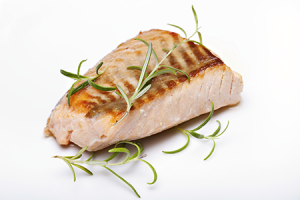 Research on omega 3 fish oils has remained tried and true. Omega 3 fats are anti-inflammatory and reproducible research continues to show that omega 3 fats provide health benefits for the heart, brain and gut.
Research on omega 3 fish oils has remained tried and true. Omega 3 fats are anti-inflammatory and reproducible research continues to show that omega 3 fats provide health benefits for the heart, brain and gut.
Some new research has shown that the omega 3 fats obtained from eating fish were more beneficial than fish oil supplements so try to eat at least 2 servings of fatty cold water fish each week including wild Alaskan salmon, sardines, anchovies, herring or small halibut.
Omega 3 fats from eating fish are MORE beneficial than from fish oil supplements. #saslife Click To TweetEMERGING PROMISING FATS
Coconut Oil
There’s a lot of hype about coconut oil in the media and on the web, some of which is true and some of which is a stretch of the truth. But, newer research about the medium chain triglycerides (MCTs) in coconut oil reveals some special health benefits including being a better fuel for cells and possessing anti-inflammatory properties.
Another bonus of coconut oil is capryllic acid, one of the predominant types of fat in coconut oil. Capryllic acid is a natural antifungal, antiviral and antibacterial making it beneficial for maintaining a healthy balance of the gut microbiota and immune system.
Avocado and Avocado Oil
Avocado is technically a fruit but the majority of its calories come from heart healthy, monounsaturated fats. Monounsaturated fats have long been considered a preferable fat. Avocado oil has a higher smoking point so it withstands high heat well and can be used for hot or cold food preparations.
NEUTRAL FATS
Saturated Fat
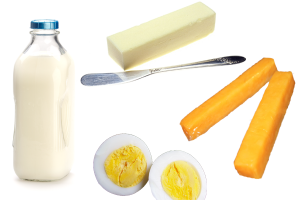 Research on saturated fats has produced the most eye opening results recently. Contrary to the 3-decades-old-dogma that saturated fats increase cholesterol and promote heart disease, numerous small studies have disproven this theory. The abundance of these small studies collectively has added enough clout that this research can no longer be ignored.
Research on saturated fats has produced the most eye opening results recently. Contrary to the 3-decades-old-dogma that saturated fats increase cholesterol and promote heart disease, numerous small studies have disproven this theory. The abundance of these small studies collectively has added enough clout that this research can no longer be ignored.
These studies have pointed out that, in fact, it is sugar and processed carbohydrates that increase serum cholesterol and triglycerides levels while increasing inflammation leading to heart disease. Ronald Krause, MD, Senior Scientist and Director of Atherosclerosis Research at Children’s Hospital Oakland Research Institute, states that sugar and processed carbs create bad atherogenic fats so they should be reduced significantly or eliminated from our diets.
Dr. Krauss suggests that saturated fats are considered NEUTRAL and do not raise serum cholesterol levels or lead to heart disease. Unless, they are eaten with sugar and processed carbs, then collectively they put us at risk. Sugar, processed carbohydrates and saturated fat together create the Standard American Diet (SAD). Americans have been proving for 30 years that the SAD promotes diseases like obesity, diabetes and heart disease. Not good!
Dr. Krauss does carefully point out, however, that no one is suggesting loading up on saturated fats. Eat and enjoy them in the context of a healthy, low sugar, processed-carb-free eating plan.
Another researcher, Jeff Bland, PhD, co-founder of the Institute for Functional Medicine, suggests that different saturated fats act differently with different risks. And, he agrees that their effect on our bodies depends on what we are eating them with. For example, the saturated fat called palmitic acid, found in butter from feed lot cattle, is very different in composition and how it acts in the body compared to the high omega-3 butter from grass fed, pastured Swiss cows in the 1800s.
In addition, feed lot cows in today’s agriculture have been fed growth hormones, chemicals and corn instead of grass so the composition of their saturated fats is quite different and comes with some unwelcomed additives.
Dr. Bland also notes that saturated fats from plant sources act differently in the body than saturated fat from animal sources.
Both researchers agree that saturated fats, eaten with a poor diet, will have very different effects than saturated fats eaten with a clean, plant-based diet.
WHAT IF YOU HAVE HEART DISEASE?
As mentioned, not all researchers are on board with these new findings about saturated fat. If you already have heart disease, follow the advice of your cardiologist as you are in a different position for risk and your tolerance for saturated fats may have changed.
Research by Dean Ornish, MD, is the only research so far that has shown dietary strategies that can reverse heart disease. You can check out Dr. Ornish’s approach to reversing heart disease in his book, Spectrum, and his Ornish Lifestyle Medicine website.
A WORD ABOUT GENETICS
One other piece of this puzzle to consider is our genetic differences. Every one of us is genetically different which means foods and our environment will interact differently with our specific genes. Nutritionists and hopefully health care providers have learned there are no longer One-Size- Fits-All dietary recommendations.
Be sure to perform your own study with an “n” of one. As you transition to the right eating plan for your body (genes) keep an eye on your lab work and how you feel. Communicate with your health care provider and nutritionist what you are doing with your eating plan and lifestyle habits so together you can determine the optimal eating plan for YOU. Your optimal eating plan may be completely different than that of your best friend or co-worker. On the bright side, in the near future, genetic testing will make it much easier to determine the personal nutrition prescription for your genes.
DIETARY FAT RECOMMENDATIONS FOR THE 21st CENTURY
So, here’s a summary of the most recent dietary recommendations from the Fat Summit with all researchers considered. And, as stated eloquently by Dr. Jeff Bland,
“Be concerned about anything you eat in excess. Everything has a point of toxicity, even air and water. Be less concerned about fats if they’re from their original source [as long as the source is clean]and eat everything in moderation”.
Chunky Chicken Soup
Recipe from: The Pioneer Woman
Makes 12 Servings
This soup recipe is one to keep on hand year round. It’s the new favorite soup in our house!
Using the whole chicken imparts wonderful flavors from the bones and skin into the soup that you would miss if you use boneless, skinless breasts or thighs. So, don’t take a short cut on this one! The aroma of the parsnips creates a heavenly scent that will slowly fill your kitchen causing your family to come running to the dinner table!
Ingredients
1 whole chicken, approximately 4 ½ lbs (free range whenever possible)
1 whole bay leaf
64 oz low sodium chicken broth (or 32 oz broth and 32 oz water)
1 large onion, chopped
3 celery ribs, sliced
3 carrots, peeled and chopped
3 parsnips, peeled and chopped
½ tsp salt
ground black pepper, to taste
Directions
1. Place all ingredients except black pepper in a soup pot or Dutch oven.
2. Bring to a boil, then reduce to a simmer.
3. Cover and simmer for 1 ½ to 2 hours, or until chicken is done and vegetables are tender.
4. Remove chicken from pot and remove bones and skin. Discard bones and skin or freeze them to make future chicken stock.
5. Shred chicken and add back to soup.
6. Taste and adjust seasonings as needed.
7. Serve and garnish with black pepper.
 This month, SAS Life is featuring heart-healthy posts in observance of National Heart Health Month. Read more....
This month, SAS Life is featuring heart-healthy posts in observance of National Heart Health Month. Read more....
